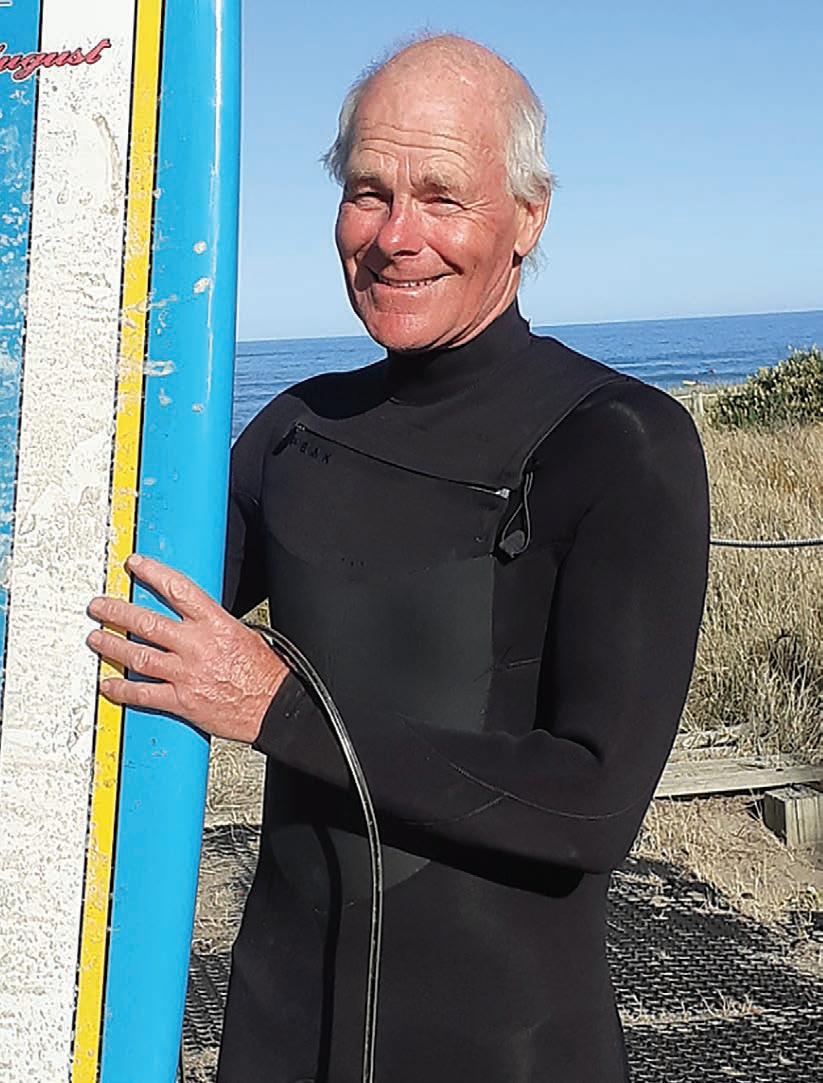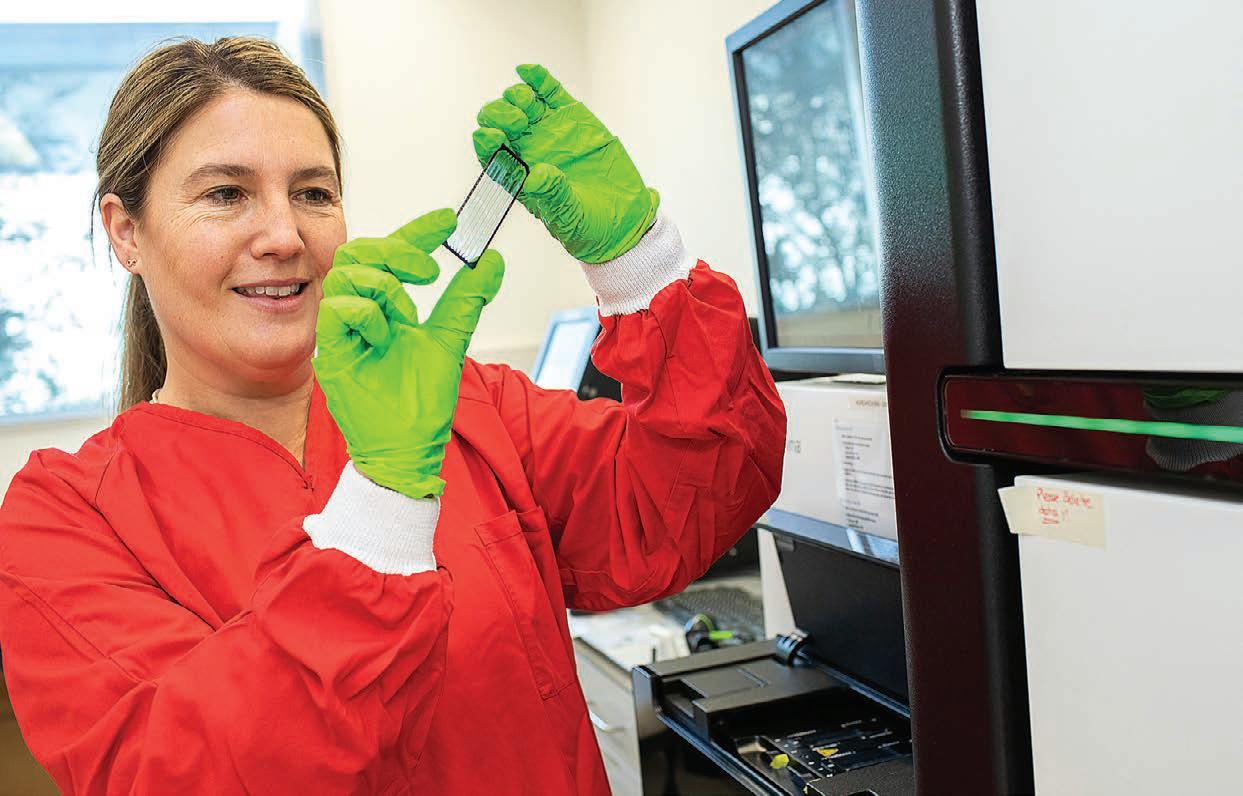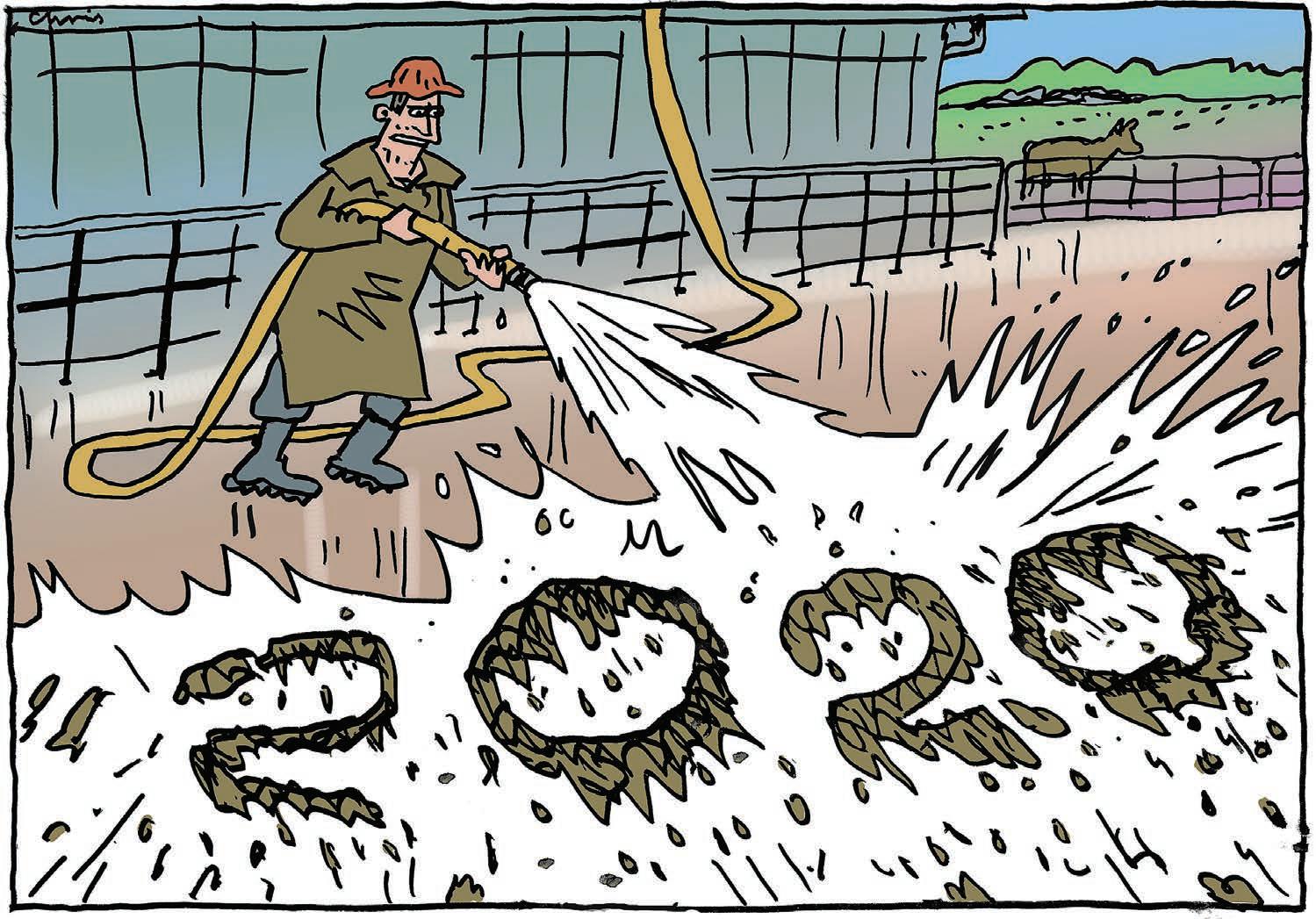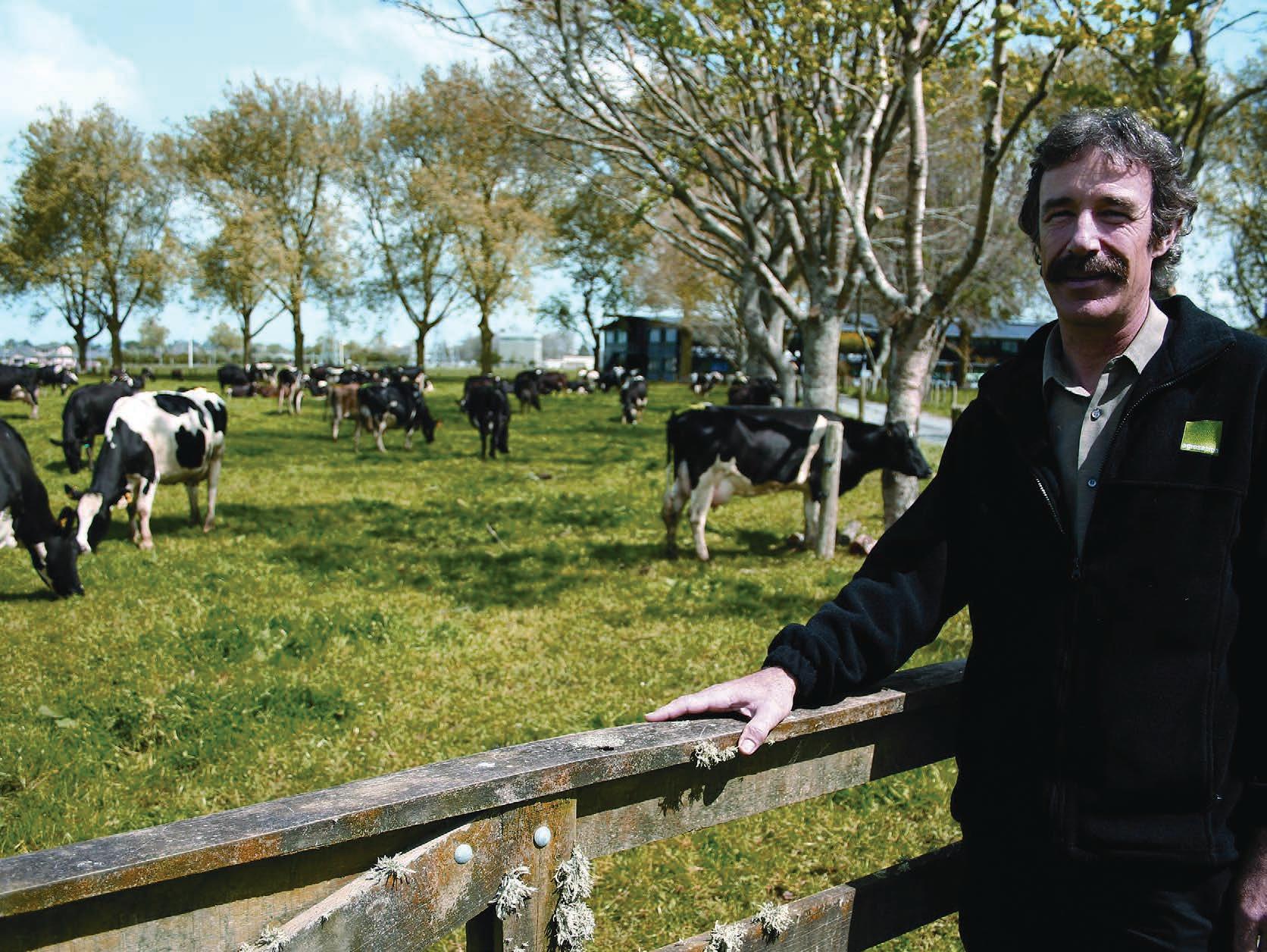
5 minute read
Pulpit
Regen ag not just sustainability
FOOD is important. Along with shelter, it’s the foundation of human needs. This importance was reinforced in 1970, when Norman Borlaug received the Nobel Peace Prize for his contribution to the plant genetic discoveries that spear-headed the Green Revolution.
In his acceptance speech, Borlaug mentioned that the award reflected the committee’s recognition of how food and peace are intertwined.
Fast-forward 50 years to 2020, and the importance of food is once again acknowledged by the Nobel Committee, with the World Food Programme receiving the Nobel Peace Prize for “acting as a driving force in efforts to prevent the use of hunger as a weapon of war and conflict,” particularly during the covid-19 pandemic.
Similarly in Aotearoa-New Zealand, throughout the covid lockdown, while people rightly heralded the important work of frontline staff in hospitals and on the “thin blue line” of our emergency services, our farmers, growers, processors and fishers quietly continued on their daily routine, producing the most nutritious and wholesome food for New Zealanders and millions of others around the globe.
Their work will become even more important as we strive towards feeding a world of nine to 10 billion people in 30 years’ time. Let me put this challenge into perspective: to nourish the world’s increasing population and meet the UN’s Sustainable Development Goal of Zero Hunger, we must produce as much food in the next 30 years as we produced in the last 2000 years. But, importantly, we must do this with a smaller footprint.
Globally, we need to replenish the land where damage to the environment has been done. This may include retiring some land currently involved in food production. If so, we might have less land to work with. We also need to find smarter ways of producing food, so we’re not contributing to atmospheric warming.
ThePulpit
Are we up to the challenge? I believe we are, but we’ve got work to do.
In its vision for food and fibre production Fit For a Better World, the Primary Sector Council acknowledged the need for more regenerative production systems, to reduce the impact of our food and fibre sectors on the environment. There are big moves in this direction overseas too. Recently, Walmart announced that it’s on a path to being a “regenerative company,” seeking to “go beyond sustainability.” Similarly, McDonalds, Target, and Cargill have teamed up to promote regenerative farming practices among their suppliers.
So, what is regenerative agriculture?
The term regenerative implies restoring, renewing and replenishing, in addition to conserving. This reaches beyond what we traditionally think of as sustainability.
Internationally, regenerative agriculture has focused on soil health and the importance of lowtill arable farming and rotational grazing. However, it makes sense to work with the characteristics of the country we’re living in. The Ministry for Primary Industries (MPI) is currently looking to define what regenerative agriculture means from a NZ perspective, and develop a sound evidence-base to test and confirm
PERCEPTION: MPI’s chief science adviser Dr John Roche says the term regenerative implies restoring, renewing and replenishing in addition to conserving, which reaches beyond what we traditionally think of as sustainability.
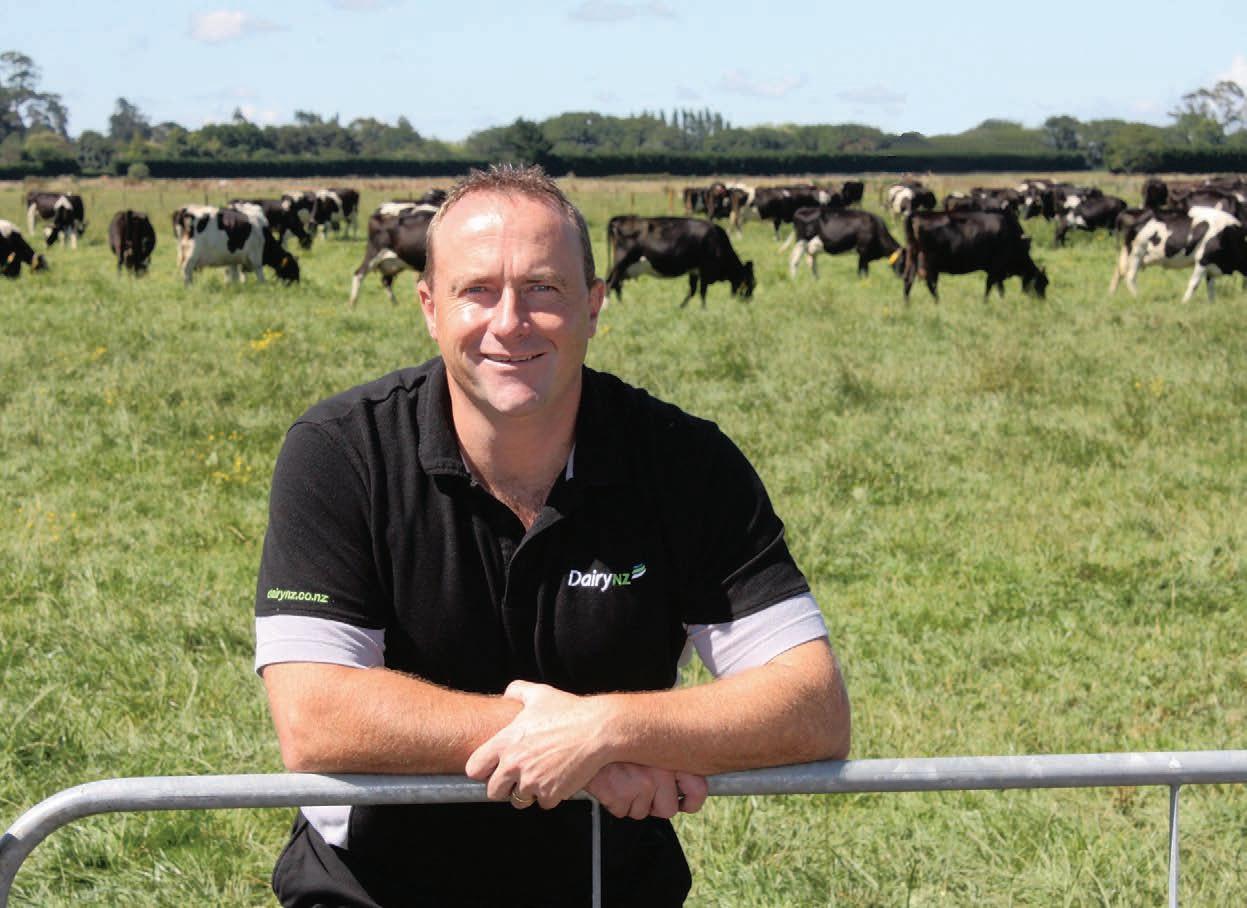
what works in NZ soils, climates and farming systems. We’re putting out a call for proposals that investigate regenerative farming practices, through our Sustainable Food & Fibre Futures fund.
Broadly speaking, we see regenerative agriculture as a set of practices that, in isolation or collectively, may result in improved outcomes for our productive land, freshwater and
Colin Williscroft colin.williscroft@globalhq.co.nz
TWO services run by the Ministry for Primary Industries (MPI) last summer to ensure livestock have enough feed will be available again this summer.
MPI animal health and welfare director Chris Rodwell says the feed planning service and the feed coordination service, both of which were well used in droughtaffected areas earlier this year, will be returning.
Rodwell says planning ahead is one of the most important things farmers can do to deal with marine environment, our climate, our animals, and for the people that grow and consume our food and fibre products.
This highlights the aims of NZ’s farmers and growers to pass on their land in a better condition than they received it, and is also consistent with the Mori kaupapa of kaitiakitanga, the restoration and rejuvenation of Papatuanuku, and whenua ora-tangata ora (when the land is healthy, the people are healthy).
It also acknowledges the needs of farmers and growers to be helped in their journey, and not unjustly criticised for what’s happened in the past.
Many farmers and growers are already undertaking numerous positive practices, like rotational grazing, fencing setback from waterways, riparian planting and low-till cultivation.
Through the projects we fund, we hope to gain a deeper understanding of what regenerative agriculture means for this country – and what does and doesn’t work. challenges created by drought, and fortunately most farmers are very good at it.
However, for those who need help completing a feed plan, which also includes lifestyle and small block holders.
The MPI-funded service is delivered by Beef + Lamb NZ, DairyNZ, Federated Farmers and other specialist providers.
The food coordination service helps to connect farmers with available feed sources.
Rodwell says animal welfare needs during summer are not too difficult to work out as they are very similar to people, with
We can then share this information with farmers with confidence.
We have some tough challenges ahead, but we are on the journey and he waka eke noa (we are all in this together).
With the ingenuity of our farmers and growers and strong investment in science and innovation, our food and fibres sectors can be the foundation of our post-covid recovery, while protecting the whenua for our tamariki and mokopuna.
Who am I?
Dr John Roche is chief science adviser for the Ministry for Primary Industries (MPI).
Your View
Got a view on some aspect of farming you would like to get across? The Pulpit offers readers the chance to have their say. farmers.weekly@globalhq.co.nz
Feed planning, coordination services returning
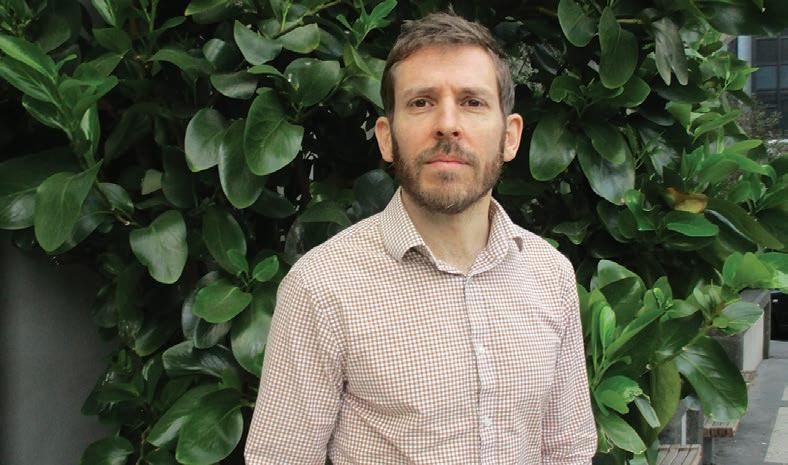
Phone 06 323 1519 access to shade and water being two simple places to start. He encouraged dairy farmers to consider milking at different times of the day or giving their cows a shorter walk to the milking shed.
MPI has also increased its team of regional emergency coordinators who are there to help when people get into trouble by addressing challenges on the ground.
Industry group websites like B+LNZ and DairyNZ contain more animal welfare advice, while contact details for the two feed services can be found on the MPI website.

